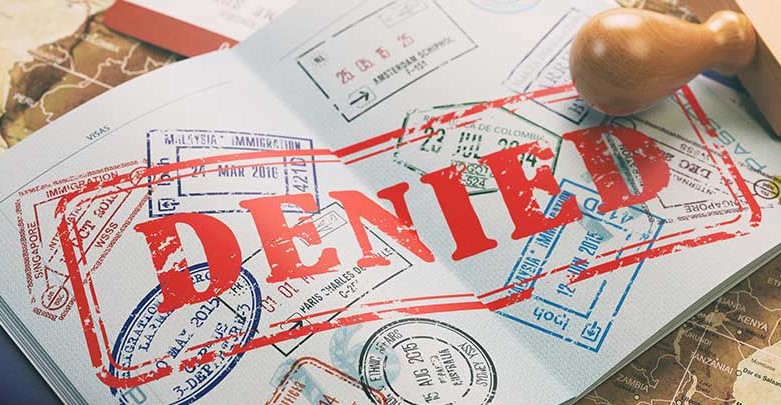International students frequently choose Ireland as their destination, however if
certain conditions are not fulfilled, getting a student visa may be difficult. The
following are the main grounds for denial of an Ireland student visa, along with
tips on how to prevent them:
1. Inadequate Evidence of Financial Resources
Candidates must show that they have the financial means to pay for living
expenses, tuition, and other expenditures during their stay.
Typical problems:
bank statements that are not inside the allotted period.
Insufficient money or big deposits that cannot be explained.
absence of proof of a financial sponsor, if any.
2. Inaccurate or Incomplete Records
Documents that are missing or poorly prepared may be rejected. An incomplete
visa application form is one example.
not submitting a letter of admission from an Irish school that has earned
recognition.
missing evidence of accommodations or medical insurance information.
3. Poor Academic Record
A history of subpar academic achievement might cast suspicion on the
applicant’s sincerity or capacity to finish the course.
An applicant may be rejected if: They don’t have the qualifications necessary for
the course they want to take.
Education and work gaps are not sufficiently justified in the application.
4. Ambiguous Goals for Studying in Ireland
The application may be rejected if the visa officer has any reason to question the
applicant’s sincere desire to study. Among the problems are:
Statement of Purpose (SOP) statements that be unclear or contradictory.
applying to a course that has nothing to do with prior professional or academic
experience.
lack of a defined professional path associated with the selected education.
5. Fears of Going Back to My Own Country
In order to guarantee that they would return home after completing their
education, applicants must demonstrate strong links to their homeland. The
candidate is rejected if: There is not enough proof of work, family, or property
ties.
Other nations have a history of visa breaches or overstaying.
The most common reasons for Ireland visa rejections include incomplete applications, insufficient financial proof, and lack of genuine intent to travel.
6. Problems With Past Visa Records
The application may be impacted by a history of visa rejections for Ireland or
other nations.
Another warning sign may be inaccurate or deceptive information from prior
applications.
7. Insufficient Evidence of English Proficiency
To demonstrate their ability to study in English, applicants must provide
appropriate test results (such as those from the IELTS, TOEFL, or PTE). Among
the problems are scores that fall short of the minimal needed for the selected
course.
submitting test findings that are out-of-date or unconfirmed.
8. Not Providing Information About Accommodations
Candidates must demonstrate that they have made suitable travel and lodging
arrangements in Ireland.
Rejections happen if: No documentation of accommodations is provided.
The information supplied is ambiguous or lacking.
9. Providing False or Fraudulent Documents
Fake documents, like falsified financial statements, certificates, or acceptance
letters, will be rejected right away and may have legal repercussions.
10. Visa Poor Performance during the interview (if appropriate)
In the event that an interview is necessary, inadequate preparation or erratic
responses may lead to rejection.
Problems: Insufficient understanding of the selected institution or course.
unable to describe how the program fits with future professional objectives.
Ways to Prevent Rejection
Create Comprehensive Documentation: Verify every document one last time
before submitting it.
Give Adequate Financial Evidence: Provide unambiguous proof of the funds
and their origin.
Create a Robust SOP: Clearly state your reasons for selecting Ireland, the
course, and your long-term goals.
Show Your Connection to Your Home Country: Emphasize your close ties to
your homeland on a personal, professional, or financial level.
Be truthful: Never send in false information or documents.
By addressing these crucial areas, you may strengthen your Ireland student visa
application and improve your chances of success! Ask for assistance if you need
it in any particular area.




